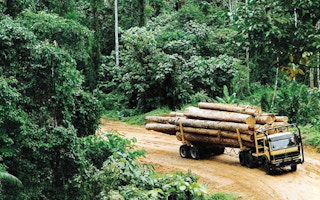Forestry Minister Zulkifli Hasan said his ministry remains committed to keeping Papua’s primary forest regions intact and not letting them be exploited by forest concession holders.
The minister made the statement in a media dialogue on forestry policies held by ANTARA News Agency here on Tuesday.
He said there had been requests for opening the forest regions in Papua for non-forestry activities but the government was resolved to keep intact the 7.3 million hectares of primary forests in the province.
“Some 26 million hectares of forest areas in the country are already controlled by forest concession holders. We intend to keep this as it is; there will be no expansion of the forest concession area. Should there be parties intending to sue (the government for not issuing new permits), they are free to do so,” Minister Hasan said, adding the non-expansion policy was being implemented nationwide including in Papua.
Hasan said there has also been a proposal for the appropriation of 1.3 million hectares of forest area for the development of the Merauke Integrated Food and Energy Estate (MIFEE) in Papua but the government has approved only 600,000 hectares.
On the approval given to the MIFEE project or industrial forest estates, Minister Hasan said priority is given to such projects because the government focuses on enhancing food resilience in accordance with the economic development corridor as directed by President Susilo Bambang Yudhoyono.
In addition to MIFEE, he said, there are 19 other proposals in Papua on the exploitation of industrial forest and forest areas for non-forestry activities. However, many have withdrawn their proposals after having been given explanation that such activities could not be carried out in primary forest areas.
“They can’t use the thickly forested areas; they instead can use the logged-over areas but then they chose to withdraw,” said Minister Hasan.
The government, he added, hopes that the remaining proposals would not be withdrawn because there are at least 40,000 hectares (logged-over areas) that can be utilized for supporting the sugar self-sufficiency program.
For industrial estate forest, Hasan said the treatment is the same for proposals on palm oil plantations and other non-forestry needs. For such purposes, the activities can take areas outside primary forest or peat land areas.
Indonesia has at least 12 million hectares of deserted forest or logged over forest areas, the minister disclosed.










